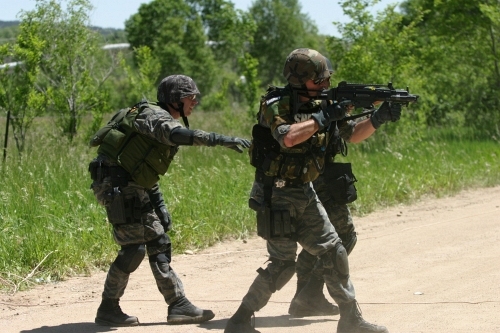Law enforcement officers serve in an operational environment characterized by danger, complexity, and ambiguity. These circumstances have always existed for these public servants, but many perceive troubling developments characterized by heightened risks and uncertainty. When seasoned veterans take stock of the current state of law enforcement, they report a complex web of conditions that take a toll on the corps: frivolous or predatory law suits, a persistent zero-defect mentality, citizens’ cell phone videos documenting both real problems or out-of-context fragments, loss of budget dollars that stretch resources too thin or renege promised pensions, line-of-duty deaths that include instances in which officers are targeted simply because they are officers.
These trends undermine the quality of operational cohesion, adaptiveness, and resilience throughout the profession of law enforcement. Suspicion and resentment begins to permeate relationships among officers, their leaders, and the elected officials and public they serve. The operational effectiveness of law enforcement depends on the behavior and attitudes of those who protect and serve – when a supervisor may not be watching but the public is.
Organizations operating in these kinds of high-stress conditions have long understood the relationship between operational culture and performance. Most major accidents and performance problems can be traced to misalignment of attitudes or values, which are the core of culture.
 Through experience building leadership and command skills with more than 20,000 response leaders worldwide, MCS offers a comprehensive framework to assist law enforcement agencies in building a strong operational culture. As the most successful firm focusing on organizational development, MCS has set the standard for affective domain education and practical training across the emergency response industry.
Through experience building leadership and command skills with more than 20,000 response leaders worldwide, MCS offers a comprehensive framework to assist law enforcement agencies in building a strong operational culture. As the most successful firm focusing on organizational development, MCS has set the standard for affective domain education and practical training across the emergency response industry.
MCS offers a range of services and products to align core values and reinforce the operational culture:
- Consulting services to institute or strengthen doctrine
- Training programs to set a foundation for first-line leaders
- Simulation and exercise development to increase readiness
- Advanced training to improve command skills

